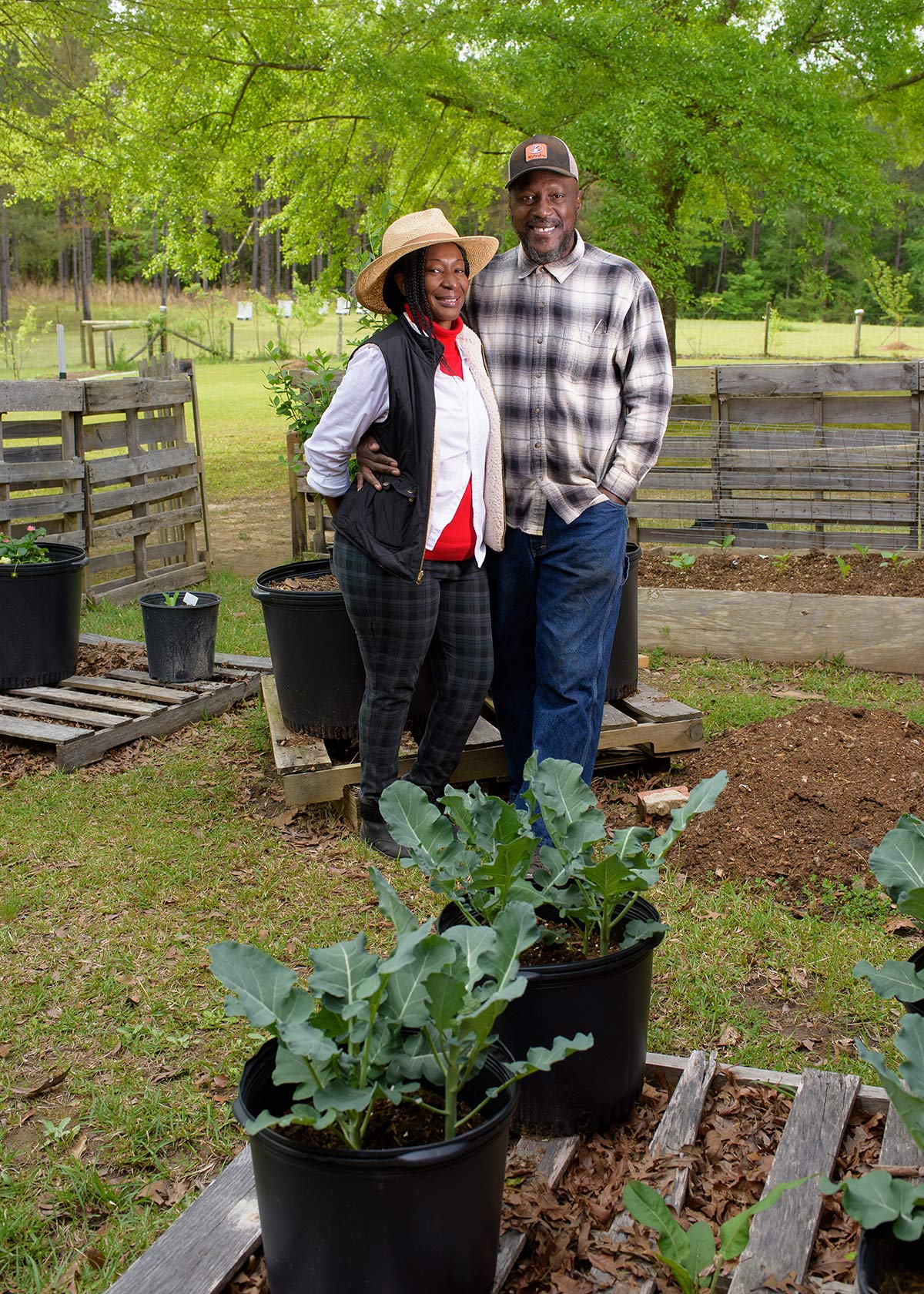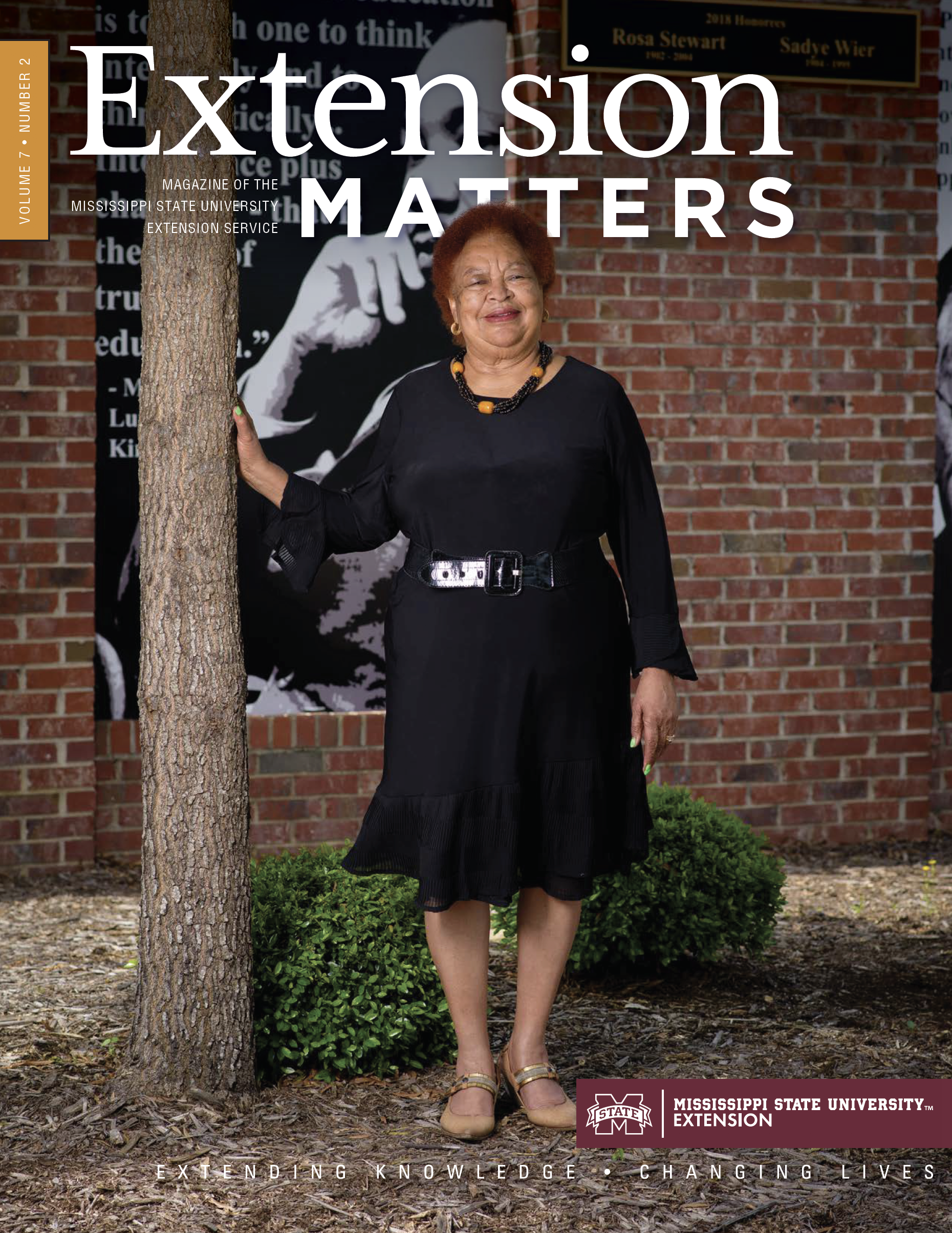More Than Just a Farm
Growers address nutrition and criminal justice shortfalls
Story by Nathan Gregory • Photos by Kevin Hudson

Growing vegetables and raising farm animals are demanding endeavors by themselves. Kevin and Teresa Springs are already succeeding at these activities, but their sights are set on combining them with their backgrounds in criminal justice to address greater societal challenges.
The Springses see their 73-acre farm in McCool as a site where criminal and food justice intersect.
In the early stages of their unconventional journey to establishing TKO Farming (short for Teresa and Kevin’s Oasis), agriculture was not in the picture. He grew up in Chicago, she in Fort Lauderdale, Florida. They met in Miami, where both ran nonprofit organizations helping former inmates reenter society after being released from prison.
“In rendering services to those who were formerly incarcerated, we didn’t have a sure way of getting people employed,” Kevin says. “It’s heartbreaking when somebody reenters society thinking their community is ready to receive them, and all they run into is barrier after barrier.”
The couple inherited the land in Choctaw County that would become the farm from Kevin’s mother after moving to North Carolina to care for family. When they visited the property in 2017, it was overgrown and took a significant amount of time to clean.
“Nature had claimed this place, and we were intruders,” Kevin recalls. “All we saw at first was land, animals, and bugs.”
Before moving to Mississippi, they began researching possible uses for the land and discovered the Mississippi State University Extension Service website. Shortly after moving, they connected with Extension agent Darrell Banks.
Banks confirmed that the Springses could use agriculture as a tool to feed the hungry and help recently released people get back on their feet.
“Learning about food systems was really eye-opening for both of us,” Teresa explains. “We didn’t know that food traveled for weeks before ending up on the shelves of multinational grocery operations.”
Banks connected them to Frank Taylor, team leader of Winston County Self Help Cooperative, who invited them to the group’s next meeting.
“There was a core group willing to come help us. They came and disked and tilled our first garden plot. They also taught us how to install an irrigation system,” Teresa says. “We had a friend from Miami bring plants and seeds. We planted what he gave us, and a few months later the whole place was green.”
Extension was not only a connection to local resources but a primary resource itself, and it remains so as they complete conservation programs through the Natural Resources Conservation Service.
“Extension offers so many great services. They have a lab for soil testing, which is something we get done every year,” Kevin says. “They have educational workshops, one of which was a canning class that has been very useful. They have great online publications. Extension has been pivotal with this farm getting established.”
The COVID-19 pandemic curtailed the hiring of formerly incarcerated locals, but the Springses plan to resume that activity as quickly as possible.
They also want to involve other Black people in farming, and they feel Extension is a great resource for producers new to the process.
“With a lot of Black people, the thought of farming leaves a bad taste in their mouth, but we believe farming is the key to independence,” Teresa says. “Growing food is the most revolutionary thing you can do, even if it’s just your own.”


